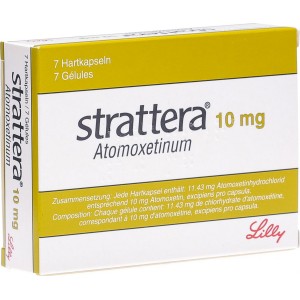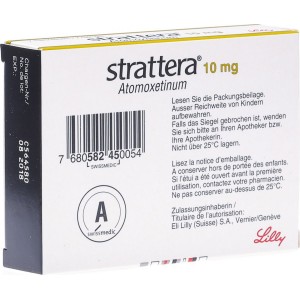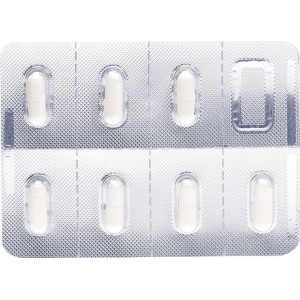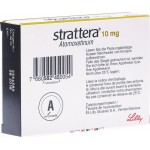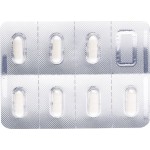Shipped From: France
Shipping Method: La Poste (Trackable)
Delivery Time: 7 To 12 Days
Availability:
Buy Strattera Online with Fastest Delivery
Buy Strattera Online without Prescription Mail Delivery . Buy Top Quality Strattera Online From Legit Pharmacy.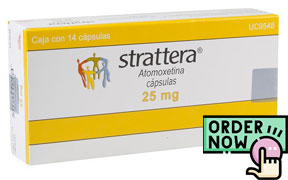
What is Strattera and when is it used?
Strattera is a medicine for the treatment of attention deficit hyperactivity disorder (ADHD) in children aged 6 years and older and adolescents.
Strattera is also used to treat attention deficit hyperactivity disorder (ADHD) in adults up to the age of 50 who have had ADHD since childhood and who respond poorly to other medications for this disease (e.g. with methylphenidate) or who cannot take these medications due to concomitant psychiatric conditions or addiction.
Strattera should be part of a treatment program that also includes psychological, pedagogical, and social measures.
Symptoms of ADHD include sudden loss of attention, distraction errors, not being able to listen, not finishing activities, not following instructions, being easily distracted, being impulsive, restless, being unable to sit still, speaking much more. than normal, walking at inopportune moments, disturbing or interrupting others and being unable to concentrate. Learning is impaired. All of this can lead to problems in the social environment, at school and at work. Only some of these symptoms may be present. Many individuals experience these symptoms from time to time, but in ADHD patients, these behaviors impair daily activities and occur in multiple situations (e.g., at home, at school, at work). ADHD can last into adulthood.
Drug therapy is not necessary for all ADHD patients. Drug administration must be motivated by a very careful assessment of the severity and duration of symptoms relative to the patient's age.
What must also be taken into account during treatment?
Strattera therapy should be initiated and monitored by a physician experienced in the treatment of ADHD. In addition to drug treatment, comprehensive therapy should also include psychological, educational and social measures. Diagnosis should be made according to recognized criteria.
When can't Strattera be used?
Strattera should not be used in the following cases:
- known hypersensitivity to atomoxetine or to any of the excipients.
- if severe depression and / or pronounced anxiety disorders are present at the same time, when there is a risk of suicidal behavior.
- if certain medicines used to treat depression and other mental disorders, i.e. monoamine oxidase inhibitors (MAO inhibitors, such as tranylcypromine), have been taken in the last two weeks, as if you take Strattera together with an MAO inhibitor medicine serious or life-threatening complications occur (see 'When is caution required when using Strattera?').
- if you have an eye disease called 'narrow-angle glaucoma'
- if you have or have ever had pheochromocytoma (rare tumor of the adrenal glands).
- if you suffer from severe cardiovascular disease (e.g. severe hypertension, heart failure, peripheral arterial disease, angina pectoris (chest tightness, pain in the heart area), congenital heart defect, heart muscle disease, heart attack, potentially arrhythmias mortals).
- if you suffer from a severe pathology of the brain vessels (e.g. aneurysm or stroke).
- in children under 6 years of age, as safety and efficacy for this group are not proven
When is caution required in the administration of Strattera?
In certain situations, particular caution and medical surveillance may be required. Tell your doctor if you are suffering or have suffered from the following diseases or disorders:
- in the event of liver disease or signs of jaundice, therapy must be discontinued and can not be restarted at a later time.
- in case of hypertension or a rapid heartbeat. Strattera can cause increases in blood pressure and / or heart rate, therefore it should be administered with caution in hypertensive patients. Your doctor will measure your blood pressure and heart rate with each change in dosage and whenever they feel it is necessary.
- in case of heart problems or cerebral blood circulation disorders.
- in case of hypotension. In hypotensive patients, Strattera can cause dizziness or fainting, therefore it should be administered with caution.
- in case of onset of seizures or increased frequency of seizures in patients already suffering from epilepsy. In these cases, Strattera therapy should be discontinued.
- in case of development of psychological problems, in particular, suicidal behavior (suicide attempt and thoughts of death)
- if you have a history of severe depression and / or pronounced anxiety disorders.
- if your child does not show age-appropriate weight gain/growth or development, a lower dose may be needed.
- in case of onset or presence in the family of certain heart disease (prolongation of the QT interval).
Patients under the age of 18 have a high risk of side effects, such as suicidal behavior (attempted suicide and thoughts of death), hostility (especially aggressive, oppositional, and anger behavior) and emotional instability. Your doctor should be informed if any of the symptoms or abnormalities described above develop or worsen after initiation of treatment or after a change in dosage. It should also not be forgotten that, as with other medications that act on the psyche, the possibility of rare serious psychiatric side effects cannot be excluded. Finally, the long-term repercussions of Strattera in relation to growth, maturation and mental and behavioral development in this age group have not yet been demonstrated.
There are a number of medicines that can strengthen or weaken the action of Strattera or cause or reinforce unwanted effects when administered concomitantly. Please always inform your doctor about all medicines you are using so that they can determine whether Strattera can be taken with these other medicines or whether certain medicines need to be replaced.
Such medicines include, for example, certain drugs for depression (antidepressants), certain drugs for treating asthma (sprays, tablets or injections), medicines for raising blood pressure, medicines for high blood pressure, certain antipsychotic medicines (for example e.g. neuroleptics), medicines for the treatment of arrhythmias, certain medicines for the treatment of heart muscle weakness (heart failure), antibiotics, narcotic drugs, antimalarials, substances against heartburn, diuretics, decongestants of the mucous membranes (e.g. drops nasal) or strong pain relievers.
Effects of Strattera on the ability to drive and use machines
Taking Strattera can cause you to feel tired or sleepy. Therefore, particular caution is recommended when driving or using machines until you are sure how you or your child reacts to taking Strattera.
This medicine contains less than 1 mmol (23 mg) sodium per capsule, ie it is essentially "sodium-free".
Tell your doctor or pharmacist if you or your child have any other illnesses, suffer from allergies, or if you take or apply other medicines externally (even if bought on your own!).
Can Strattera be taken while pregnant or breastfeeding?
If you are pregnant or pregnant, you should contact your doctor. Strattera should not be taken during pregnancy unless specifically prescribed by your doctor.
There are no data on the passage of the active substance of Strattera into breast milk. Therefore, Strattera should not be used during breastfeeding.
How to use Strattera?
Before the start of treatment, the doctor clarifies if cardiovascular disease is present.
For children and young people, doctors also check their weight and height before and during treatment.
It is important that you take Strattera exactly as your doctor has told you. If in doubt, contact your doctor or pharmacist.
Strattera is usually taken once or twice a day (in the morning and late afternoon or early evening) with a little liquid. Strattera can be taken on an empty stomach or on a full stomach.
By taking Strattera at the same time each day, it is easier to maintain regularity.
It may take a few weeks from the start of Strattera therapy before the full effect is achieved.
Strattera can be used in children from 6 years of age, in adolescents and in adults up to 50 years of age. Therapy usually lasts no longer than a year.
After one year, your doctor must evaluate whether or not to continue the treatment.
The initial dosage is determined by your doctor. Usually, it starts with a low dosage to be maintained for at least 7 days. Thereafter, depending on your or your child's therapeutic response, your doctor may increase the dosage. Your doctor determines the optimal daily dosage.
In the case of patients with liver disorders, the treating physician will adapt the dosage to the clinical picture.
The missed dose should be taken as soon as possible. However, a maximum of one total daily dose should be taken within 24 hours.
Do not double the dosage to make up for the forgotten dose.
In the event of an accidental overdose of Strattera, contact your doctor or pharmacist immediately and tell him how many capsules have been ingested and in what strength.
The most likely symptoms are gastrointestinal disturbances, somnolence, dizziness, tremor, and abnormal behavior such as internal and external agitation and hyperactivity.
Do not change the prescribed dosage on your own initiative. If you think that the action of the medicine is too weak or too strong, talk to your doctor or pharmacist.
What side effects can Strattera have?
Taking Strattera can cause the following side effects.
The most frequent side effects in children during Strattera treatment are gastrointestinal tract disturbances such as decreased appetite. In clinical studies, children have shown weight loss and a reduction in longitudinal growth, conditions that can be normalized in the context of long-term therapy. For this reason, your doctor will closely monitor your child's development of height and body weight (see 'When is caution required when using Strattera?'). Cases of headache, drowsiness, nausea, vomiting, abdominal pain, rapid heart rate and hypertension have also been observed very frequently.
Loss of appetite, constipation, digestive disturbances, irritability, mood swings, insomnia including sleep disturbances, sleep continuity disturbances and early awakening, agitation, anxiety, depression and melancholy, tics, dizziness, have frequently occurred. dilated pupils, fatigue, lethargy, skin inflammation, rash, itching, weight loss.
Occasionally, momentary loss of consciousness, tingling, numbness, seizures, headache, tremors, weakness, conjunctivitis, palpitations, tachycardia, changes in ECG (electrocardiogram), sweating, allergic reactions, aggression, hostility and emotional lability, psychosis have been reported including hallucinations, onset of suicidal thoughts, self-harm and isolated cases of suicide (see 'When is caution required when using Strattera?').
In addition, episodes of hypotension on rising with fainting have been reported rarely, Raynaud's disease (blood vessel disorder that makes fingers and toes white and numb), painful priapism, genital pain in men, difficulty in urinating or painful urination, retention urine.
In rare cases, Strattera can trigger severe allergic reactions (swelling, skin reactions, itching or cough) possibly with shock. In such cases, Strattera should be stopped immediately and your doctor consulted.
Rare cases of liver damage have also been reported. If you have dark urine, yellow skin or eyes, tenderness in the upper right abdominal area, unexplained nausea, tiredness, itching or flu symptoms, stop taking Strattera immediately and inform your doctor.
All the side effects described above were also observed in adults.
In adults, decreased appetite, insomnia (including disturbances in falling asleep, disturbances in sleep continuity, and early awakening), headache, dry mouth, and nausea occurred more frequently.
In addition to the side effects mentioned for children or with a different frequency than children, the following side effects were also found in adults:
Frequently: decreased libido, sleep disturbances, taste changes, tremor, flushing, flushing, flatulence, sweating, frequent urination, difficulty in urination or painful urination, delayed or retention of urine, menstrual disturbances, disturbances of ejaculation, erectile dysfunction, prostatitis, genital pain in men, weakness, chills, feeling of inner agitation, thirst.
Occasionally: agitation, tics, blurred vision, tachycardia, increased urination, numbness in the extremities, hives, muscle cramps, feeling cold.
If you notice any side effects, please contact your doctor or pharmacist, especially if they are side effects not described in this leaflet.
The medicinal product should not be used beyond the date indicated with "EXP" on the container.
Do not store at temperatures above 25 ° C and store out of the reach of children.
Atomoxetine capsules must not be opened. Atomoxetine can irritate the eyes. In case the contents of the capsules come into contact with the eyes, the affected eye should be washed immediately with water and medical advice should be sought. Hands and surfaces that may have come into contact with the contents of the capsules should be washed as soon as possible.
Your doctor or pharmacist, who has detailed professional information, can give you further information.
What does Strattera contain?
1 hard capsule of Strattera contains 10 mg, 18 mg, 25 mg, 40 mg, 60 mg, 80 mg or 100 mg of atomoxetine.
10 mg hard capsules: dimethicone 350, pregelatinized starch (maize), sodium lauryl sulfate, gelatin, titanium dioxide (E171), shellac, propylene glycol, potassium hydroxide, black iron oxide (E172).
18 mg hard capsules: dimethicone 350, pregelatinized starch (maize), sodium lauryl sulfate, gelatin, yellow iron oxide (E172), titanium dioxide (E171), shellac, propylene glycol, potassium hydroxide, black iron oxide (E172) .
25 mg and 40 mg hard capsules: Dimethicone 350, pregelatinized starch (maize), sodium lauryl sulfate, gelatin, indigo carmine (E132), titanium dioxide (E171), shellac, propylene glycol, potassium hydroxide, black iron oxide (E172 ).
60 mg hard capsules: dimethicone 350, pregelatinized starch (maize), sodium lauryl sulfate, gelatin, yellow iron oxide (E172), indigo carmine (E132), titanium dioxide (E171), shellac, propylene glycol, potassium hydroxide, oxide of black iron (E172).
80 mg and 100 mg hard capsules : dimethicone 350, pregelatinized starch (maize), sodium lauryl sulfate, gelatin, yellow and red iron oxide (E172), titanium dioxide (E171), shellac, propylene glycol, potassium hydroxide, oxide of black iron (E172).

